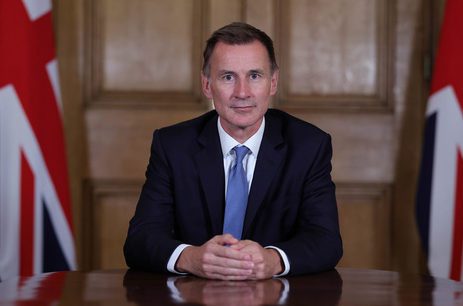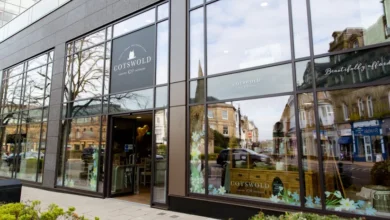Retailers welcome budget but ‘missed opportunity’ for rates reform
Jacqui Baker, partner and head of retail at RSM UK and chair of ICAEW’s Retail Advisory Group, deemed there was actually ‘very little for retailers’ among the budget

Register to get 1 more free article
Reveal the article below by registering for our email newsletter.
Want unlimited access? View Plans
Already have an account? Sign in
Retail has welcomed the support for households in the face of the cost of living crisis in the chancellor’s Spring Budget but some have criticised it as a “missed opportunity” for business rates reform.
Headline measures announced by the chancellor included an increase in corporation tax to 25% for businesses with with profits over £250,000 and a provision of £9bn of “full capital expensing” which for the next three years will see businesses able to deduct every single pound spent on IT equipment, plant or machinery from taxable profits.
Additional measures include an extension to the energy price guarantee and freezes on fuel and alcohol duty, with the chancellor claiming the latest budget aims to deliver “long-term, sustainable, healthy growth”.
Reacting to the news, Helen Dickinson, chief executive of the British Retail Consortium, said that the measures to help suppress the “volatile demand caused by high inflation and low consumer confidence” were “welcomed” but added the Government “must do more to limit one of the biggest drags to retail investment which is oncoming regulatory burdens”.
She said: “…Many businesses are weighed down by a myriad of higher costs right through the supply chain. Government must do more to limit one of the biggest drags to retail investment, which is oncoming regulatory burdens heading down the track, or risk a crash in business investment and further inflationary pressures.The chancellor understands the need to train people to re-enter the workforce, yet he missed a key opportunity to fix the issues with the Apprenticeship Levy system that would support this very goal.
“Over the last three years, businesses have lost £3.5bn in unused Levy funds. To break this cycle of wasted investment, it is vital that Government allows businesses to use their hard-earned Levy funds for a wider array of skills courses. Without spending a penny, the chancellor would increase investment in our workforce, helping businesses to prepare the UK economy for the skills it needs.”
She added: “While the Autumn Budget brought in some welcome changes to the Business Rates system, further reform is needed. The broken Business Rates system remains a drag on business investment, jobs, and economic growth. Rates must be paid in full whether firms are making a profit or a loss.
“This makes Business Rates the final nail in the coffin for many struggling stores; shutting shops, costing jobs and preventing new stores openings. The chancellor should make good on the Conservative 2019 pledge to reform Rates and lay out a clear roadmap for future reforms.”
In a more positive evaluation, Matthew Fell, CBI interim director-general, said that the Budget was a “strong second act” in the chancellor’s plan for stability and growth.
He added: “The CBI called for action on people and productivity and the government has delivered support for both. Measures to help households and businesses will secure the growth we need to boost living standards for all.
“Full capital expensing will keep the UK at the top table for attracting investment and puts us on an essential path to a more productive economy.”
Meanwhile, Jacqui Baker, partner and head of retail at RSM UK and chair of ICAEW’s Retail Advisory Group, deemed there was actually “very little for retailers” among the budget.
She concluded: “The silence on VAT relief – which would have boosted tourism, footfall and sales from international visitors – and no mention of any longer-term help on business rates reforms is disappointing.
“Some good news with regards to the economy not technically going into recession. Consumer confidence is vital for retailers and hopefully will provide some stability in the coming months.”







